#also rico and karl are watching us through the window
Explore tagged Tumblr posts
Text
Boss makes a dollar while I make a dime, so I teach my demon friend @skittishsadismdemon about jazz history on company time.
#we're currently looking at the new orleans jazz movement#and he's figuring out how a computer works#also rico and karl are watching us through the window#but this ain't about them#allan! allan!#redacted roleplay#rico the raccoon saga#continues
13 notes
·
View notes
Text
Movie Review - Judge Dredd (1995) & Dredd (2015)

Two movies, that juggle the same ambitions to adapt the comic books and present them to a larger audience, but take radically different approaches.
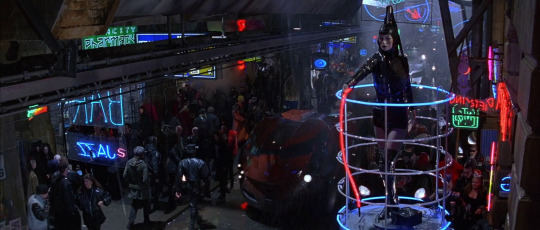
I need to preface this review on both Judge Dredd movies, released almost one decade apart, with the disclaimer that I am unfamiliar with the source material of the Dredd comic books, created by writer John Wagner and artist Carlos Ezquerra. Though through word of mouth I’ve come to understand that the 2012 reboot Dredd is infinitely more faithful to the graphic novels, rather than the more mainstream blockbuster approach of the 1995 film. Despite that, having watched both in quick succession, I must say that the original does a better job of involving the viewer in the world of Mega-City One, immediately starting the movie off with a credit sequence featuring stills from all the various comic books and introducing the lore of the world in a very Star-Wars-esque text crawl, even featuring James Earl Jones himself as the narrator for the film.
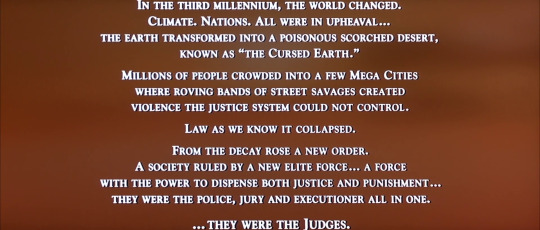
In all its nineties over the top fanfare, it almost instantly builds the atmosphere of an uninviting, uninhabitable world, reminiscent of other techno-noir settings, such as that of “Blade Runner”, filled with civil unrest, crime and other assorted scum and villainy. In the first five minutes of the film, you get to see Judge Dredd himself (played by Sylvester Stallone) dispense the law like no other, showing complete control of the situation and demonstrating his mastery of the judge’s high-tech gadgets, which feel like an extension of himself and his duty to the law. Although, even if he is built to be this legend amongst men, keeping the streets of Mega-City One clean, he is shown to lack the same proficiency in ethics as he does in combat, which is later played on to humanize Joseph Dredd in his darkest hours yet. Despite his hard exterior, Dredd upholds the ideals and is aware of the commitments that are expected of him -- to bring the law to the lawless when the time comes. His antithesis – Rico (portrayed by the coarsely handsome Armand Assante) is built to be this cunning, almost unstoppable force that is coming for Dredd, and despite, at first, the villain for this movie being planned to be Judge Death, a monster from the comic books who makes "living" illegal, Rico had more to do with Dredd's past, almost appearing as his equal in strength and wit, which in my opinion served the film’s story well.
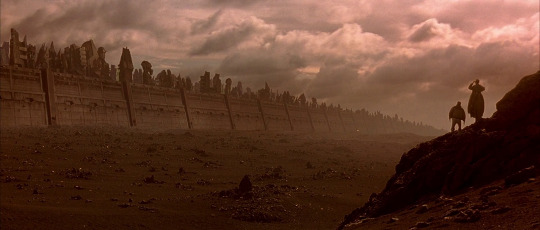
In the Dredd comics, tradition dictates that Dredd does not take off his helmet, thus his face has mostly only fleetingly appeared in full, although in the film adaptation this was almost absolutely thrown out of the window, in favor of showing Sylvester Stallone’s face for the majority of scenes in the movie, causing a lot of controversy, but oddly fitting for this closer to heart approach to the dark dystopian universe of Judge Dredd. But Dredd is not alone in this harsh world. His companion throughout the film - Street Judge Hershey (played by the absolutely stunning Diane Lane) often looks after Dredd and saves his back on multiple occasions, eventually even becoming a love interest for the main character, which again I would suppose is not very faithful to the origin material.

The inciting incident of the film is Dredd being sent to court over the false accusations of murder, betrayed by his higher ups and Chief Justice Fargo (played by the amazing Max von Sydow), being Joseph’s longtime friend and mentor from the Academy, seeing Dredd’s defense crumble, sentenced to death, retires as Chief Justices and the council grants his last wish – sparing Dredd’s life, as the former Chief Justice goes on his long walk into the Cursed Earth. This sets Judge Dredd on a course for revenge, eventually revealing his true origins and confronting Rico.
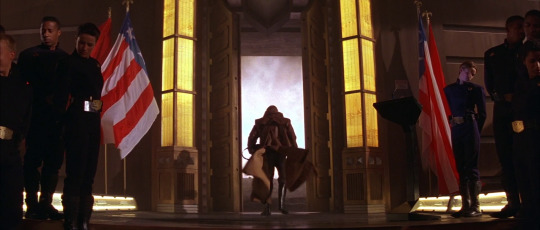
The film’s plot manages to keep up appearances, showing Dredd as the immovable object and Rico as the unstoppable force, clashing both together in a thrilling story of revenge, sacrifice and uncovering one’s past. All of this, accompanied by the amazing score of Alan Silvestri, which more often than not emphasizes the internal struggle of Dredd to uphold the law, whilst also learning the truth of his origins and the evil that surrounds him. Dredd’s theme music is ultimately memorable and a cast of colorful accompanying characters, well placed comedic moments, an atmosphere that oozes with unflinching conviction, bolstered by the best of nineties CGI, along with the fairly clichéd, but thrilling story makes for a really good movie, but perhaps a bad Judge Dredd adaptation overall.

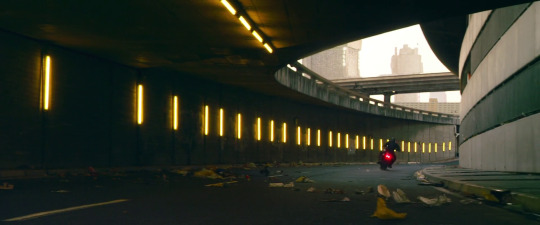
On the other hand, the 2012 remake “Dredd”, starring Karl Urban, starts with much less fanfare, substituting the techno-noir CGI of the original with a much more grounded and seemingly present-day atmosphere, the only difference being the massive protruding skyscrapers, called Mega-Blocks. It almost looks like they’ve taken stock footage of New York and in post-production just applied CGI towers at random, which makes for a fairly boring landscape, compared to the cyberpunk mesh of cultures that usually goes with the territory.

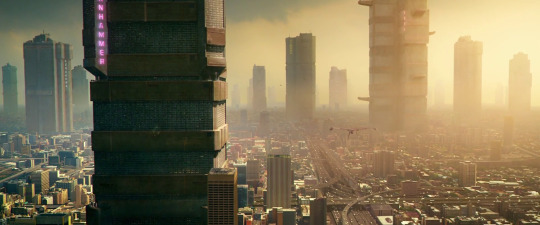
The original spent more time fleshing out the world outside, while the reboot is set in a single building that almost immediately gets closed off to any outside influence. I could only imagine that being due to budgetary constraints, but sadly that seems to have an effect on the whole movie. There is a noticeable drop in the quality of cinematography from the 1995 film, which boasted a large quantity of varying shots and scenes, compared to “Dredd”, which I had noticed almost always framed Judge Dredd and Judge Anderson in the same way, often against bland backgrounds and lifeless décor.
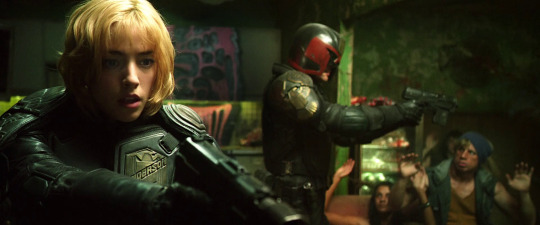
Speaking of Anderson (portrayed by the enchanting Olivia Thirlby), she is almost immediately shown to possess some kind of ability that would make her useful as a companion to Dredd, unlike Judge Hershey, who was usually the inferior judge in the situation, but proved to be there in the right place in the right time more often than not. Judge Anderson is a psychic, due to her inborn mutation from living near the outer rim of Mega-City One. Although her ability is only used to further the plot, where otherwise nothing would happen. Her ability to enter minds was also played for a bit of shock factor, as the movie was going forth with yet another stab at political correctness. I didn’t find her presence in the movie to be to preachy of the female-forward narrative, as she really was just doing her job.
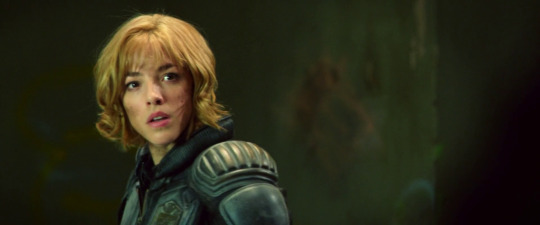
Which also seems to be the main thread of the film – another day of fighting crime for Judge Dredd and his band of pals. The original had events, which would have an effect on the world and characters changed for better or for worse – Chief Justice Fargo sacrificed himself for the law and his apprentice, Rico wanted to free himself and create others like him for him and his brother, Judge Hershey wanted to prove herself as capable and also save Dredd. Meanwhile, the 2012 film simply had a baddie, selling drugs to people, so that we could have some aesthetic slow motion scenes, a rookie Judge wanting to again prove herself, some rogue Judges looking for money and a hacker who just wanted to run away -- characters who either die during the movie or get a single chance at redemption.

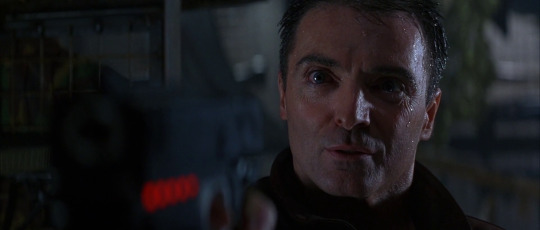
I find it necessary to compare the villains of the two films, despite them serving different functions in the larger story. Ma-ma (played by “Game of Thrones” star Lena Headey) is simply brooding and disinteresting, compared to the charismatic antics of Rico in the original. We get a brief glimpse into her origin story, which sadly failed to garner any sympathy or establish a gray line, like that of Rico’s story. Her entire existence is to simply provide a goal for Dredd and to create a few pretty scenes where he says a few good one-liners and then proceeds to beat people up. Ma-ma believes to be smarter than Dredd, but poses no actual threat to him herself, since her posy of bodyguards are her only effective means of defense. Rico on the other hand is almost a direct clone of Joseph Dredd himself – (and as I repeat myself) equal in strength and wit. Perhaps only differing in his ideology and perspective on the world, which just happens to be quite evil. And let us remember that Rico was not alone in his endeavors, as he had inside help from some corrupt Judges, similar to those mercenaries in the reboot.
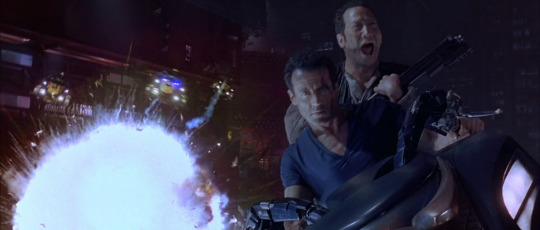
Overall, both films try to adapt the stories and characters from the original comic books and perhaps put them in front of a larger audience. “Judge Dredd” (1995) doesn’t burden itself with upholding some of the stricter traditions of the origin material, but instead builds a rich world with interesting characters with questionable ethics, plays to the strengths of the action genre and of the comic books and provides an entertaining hour and a half of intense action scenes, betrayals, twists, sacrifices and thrills, set in an unforgiving dystopian world. While “Dredd” (2012) upholds the traditions of the origin material, it railroads itself into often feeling drab and too focused on being faithful to the source, whilst also trying to have some aesthetically pleasing scenes with Judge Dredd’s signature one-liners. Though in the process and perhaps due to budgetary restrictions and the emphasis on 3D effects, which aren’t present outside of the theatrical release, it sacrifices developing its own characters and showing little to nothing of the outside world and somehow appearing more clichéd than its predecessor film.
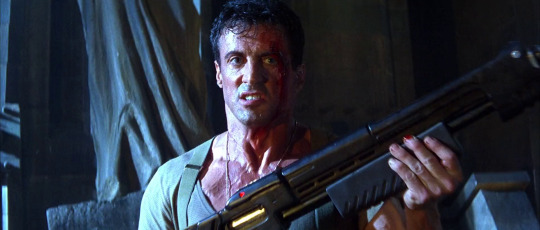
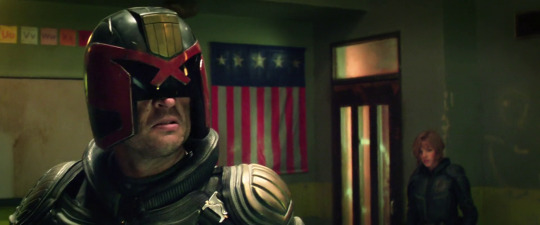
The question that naturally arises from both these points is whether it is more important for a movie adaptation to stay faithful to the source material and not stray too far for the sake of appeasing the devoted fans or sacrificing a bit of that strict tradition in order to produce an overall more enjoyable film, which would probably appeal to a larger audience, that would most likely be unfamiliar with the source material in question, despite only being inspired by or drawing from the original comic books.
I believe the answer lies in the balance of both, since if you would rather be completely fateful to the comic books, you’d most likely be more interested in the books themselves, more than watching the movie, which with some creative license could enhance and extend the already rich world of the “Judge Dredd” comic books. One or the other should be looked at as a supplement to an existing work, rather than a replacement for the other. The important is that it’s Judge Dredd… he is… the law! Drop… your weapons! These blocks… are under… arrest! This is… your final… warning!
“Judge Dredd” (1995) - 9/10 “Dredd” (2012) - 7/10

1 note
·
View note